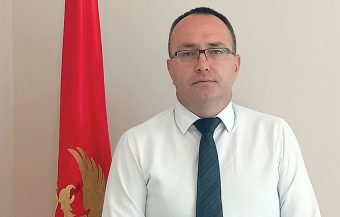
As an energy entity responsible for organizing and managing the electricity market in Montenegro, the Montenegrin Electricity Market Operator (COTEE) continuously works to improve this segment while following trends and changes in the market of the region and Europe to create an open, transparent and non-discriminatory market environment as possible. COTEE creates conditions for a better and more competitive electricity market. Together with the electricity exchange, COTEE should enable energy entities with surpluses or electricity deficits to sell and buy it, respectively, while facilitating competitiveness and transparency of the entire process in Montenegro. We spoke with Mersudin Gredić, the Executive Director of COTEE, about the COTEE’s operating principles, how individuals can relieve themselves of the cost of renewable energy sources (RES), and how producers can get better market conditions, the advantages of guaranteed purchase of electricity, the development of solar energy, electricity trading in Montenegro and plans for the next period.
Q: How do the processes related to improving the electricity market in Montenegro affect renewable energy sources?
A: The development of the electricity market, which is our prerequisite for joining the European Union, as well as the harmonization of national regulations with the European ones, have a positive effect on the development of renewable energy sources, which is evidenced by the great interest of investors in the development of new projects in this area.
Q: How can individuals be relieved of the cost of RES and producers having better market conditions?
A: In its 2023 decree, the Government of Montenegro additionally reduced the fee for the production of electricity from RES by 50 per cent to take a responsible approach to consider the needs of individual citizens. In this way, individual producers must pay a significantly reduced fee to improve their overall economic standard. This year, we did not have requests from privileged producers to enter the market from the feed-in tariff. Several privileged producers who entered the market in the previous period returned to the incentive system this year. This indicates that the privileged producers assessed that now is not the moment to enter the market due to low electricity prices.
IN FOCUS:
- Investing In Sustainable Management of RES
- Maribor – Circular Economy Implementation Hub
- On the Way to the Energy Transition
Q: How would you assess the current development of solar energy and solar power plants in Montenegro, and what are your plans? How is the implementation of the SOLARI 3000+ and 500+ projects going?

A: Five solar power plants with an installed capacity of 2.2315 MW are included in the incentive system. Since we have many sunny days, there is great potential for developing solar power plants. Implementing these projects has multiple benefits and indeed represents a significant parameter for the overall development of the energy sector and overall economic progress.
When it comes to the SOLARI 500+ and 3000+ projects, Elektroprivreda Crne Gore is the chief project partner in carrying out project activities. The company recognized that the projects would be in the best interest of both individuals and legal entities in ensuring the use of this type of energy. In line with its business policies, the company implements these important projects. Development projects related to renewable energy sources contribute to accomplishing not only energy goals but also environmental protection goals, one of Montenegro’s strategic goals.
Q: How is electricity traded in Montenegro, and what are you planning to do in the coming period following the Energy Law?
A: Our country has an excellent connection with the Western Balkan and EU countries (undersea cable with Italy), which has helped Montenegro be viewed as one of the more interesting countries in this part of Europe. This good position was further boosted by the launch of the day-ahead market a little more than a year ago by the Electricity Exchange. Following the adoption of the new Law on Energy and the National Energy and Climate Plan, the obligations and plans of energy companies will be better specified in the coming period, and this segment’s development will increase.
Interview by Mirjana Vujadinović Tomevski
Read the whole interview in the new issue of the Energy portal Magazine AGROSOLAR ENERGY AND RES.
